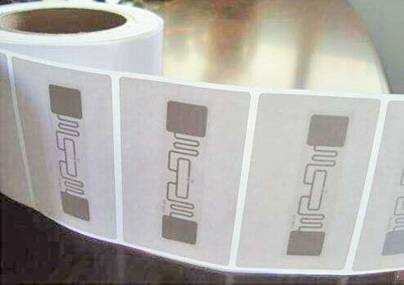Email cannot be empty
Password cannot be empty
Email format error
Email cannot be empty
Email already exists
6-20 characters(letters plus numbers only)
The password is inconsistent
Email format error
Email cannot be empty
Email does not exist
6-20 characters(letters plus numbers only)
The password is inconsistent


Application of RFID in Anti-Counterfeiting and Traceability
Application of RFID in Anti-Counterfeiting and Traceability
I. Product Anti-Counterfeiting and Traceability: A Fundamental Demand for a Better Life
With the continuous improvement of material living standards, people’s requirements for the quality of consumer goods have also risen. Safety, reliability, and healthiness in food and daily products have become basic expectations. However, issues such as counterfeiting, origin fraud, price manipulation, quality concerns, drug residues, heavy metal and chemical fertilizer contamination, illegal additives, and genetically modified foods persist, increasing uncertainties in quality safety and consumer purchasing risks.
In this context, RFID and blockchain technologies have been applied to establish a comprehensive anti-counterfeiting and traceability system covering production, processing, and sales, ensuring the quality and safety of consumer goods. Through Fuligou’s anti-counterfeiting and traceability system, counterfeit products can be identified. Additionally, the system automatically records and stores product-related information throughout the supply chain. If quality issues arise, problematic raw materials or production stages can be quickly traced, enabling targeted recalls and penalties to enhance overall product quality.
The traceability system reveals a product’s "life story."
II. Product Anti-Counterfeiting via RFID Technology
RFID (Radio Frequency Identification) is a non-contact automatic identification technology. Its greatest advantage lies in automated data capture once deployed, eliminating manual scanning and ensuring comprehensive information collection. Moreover, the need for electronic tags in RFID systems significantly reduces the risk of fraud, enhancing system credibility. RFID also ensures objective and fair data collection. When integrated with blockchain, it further prevents tampering with on-chain data.
Why use RFID for anti-counterfeiting?
RFID tags require specialized equipment for recognition, making replication or counterfeiting extremely costly and difficult. Additional advantages include:
-
Each tag has a unique, unmodifiable ID.
-
No mechanical wear or susceptibility to damage.
-
Secure physical interfaces on readers, inaccessible to end-users.
-
Data security via password protection and encryption algorithms.
-
Mutual authentication between readers and tags.
-
Long-distance, non-line-of-sight reading with strong environmental adaptability.
-
Near-100% accuracy and high-speed recognition (hundreds of tags per second).
-
Compatibility with high-speed moving objects.
-
Reusable read/write functionality and long lifespan with large storage capacity.
By leveraging RFID, counterfeit products can be prevented from entering the market, avoiding economic and reputational losses for businesses. Fuligou has developed an RFID-based logistics and supply chain management system. Information such as brand, type, production date, and other identifiers are stored on electronic tags (e.g., for liquor or cigarettes). This system tracks the entire lifecycle of products—from production and warehousing to sales—while automating output and sales statistics. Beyond anti-counterfeiting, it achieves informatized and automated management.

III. Product Traceability via Blockchain Technology
While RFID enables anti-counterfeiting and traceability databases, traditional centralized systems (whether enterprise-owned or third-party) face risks such as data loss from cyberattacks or human tampering. Additionally, supply chain participants often use disparate systems, requiring redundant checks to verify accuracy and leaving room for data manipulation.
To address these challenges, Fuligou integrates blockchain technology with RFID to build a decentralized anti-counterfeiting and traceability system. Blockchain, also known as distributed ledger technology, features decentralization, transparency, and collective participation in data recording. Traditional traceability systems suffer from centralization, data silos, low credibility, and malicious practices, whereas blockchain’s immutability, transparency, and traceability make it ideal for resolving trust issues.
Fuligou’s RFID-blockchain system records the entire information flow—from raw materials to shelf sales—automatically onto the blockchain with timestamping, granular down to individual items (one code per product). Encrypted data storage and distributed ledgers ensure no unauthorized modifications, meeting core commercial traceability demands. Consumers can access complete product information on the blockchain, addressing the "trust gap" in traditional systems.
By leveraging blockchain’s decentralized nature, government agencies and enterprises can establish a traceability alliance chain. Multi-party participation in data recording raises the cost of fraud and ensures data authenticity. Blockchain also enables rapid, precise problem tracing and targeted recalls when issues arise. Combined with RFID, it minimizes human intervention, enhances efficiency, and bolsters trust through data source verification.
This integrated approach ensures product safety, builds consumer confidence, and drives innovation in quality management.

